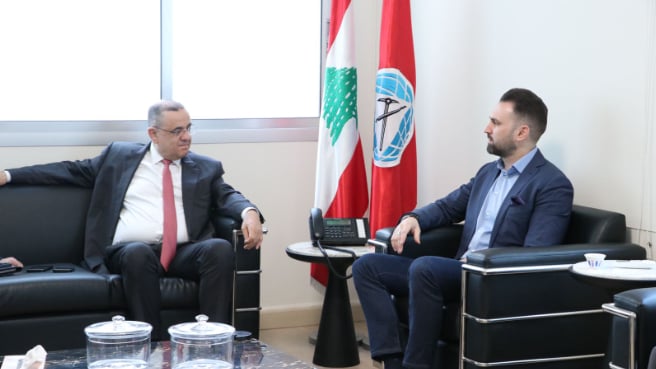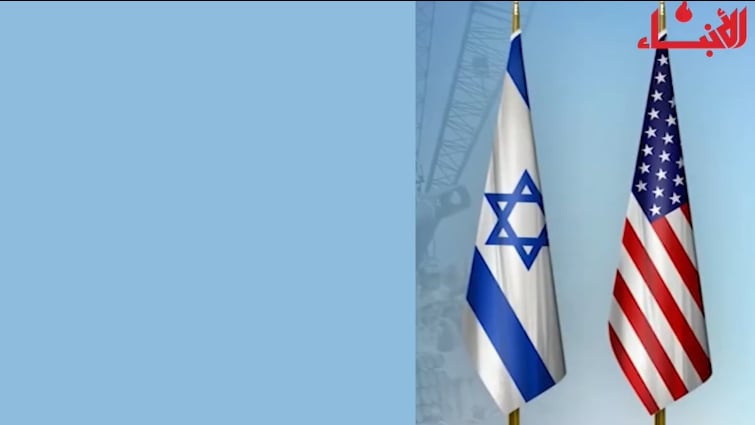We are facing a crisis of leadership in our country where our values, candor, moral courage, respect, and accountability are all called into question. This is seen in the actions of leaders raising continuous issues about our diplomatic strategy, confusion about our domestic policy, and potential shutdown of the government over a wall. There are indications of corruption in the election process accompanied by attacks on the media, mistreatment of our allies, and attacks on the FBI. Moreover, we have been confusing policy and strategy with decisions for the use of our military.
All this is reflected in current headlines. We see the precipitous announcement of Defense Secretary James Mattis’ resignation, withdrawal from Syria, potential withdrawal from Afghanistan, the mishandling of accountability with regard to the ambush in Niger last year that cost the lives of four American soldiers, the deployment of our troops to the border, the president’s attack on retired Admiral William McRaven, and the president’s impulsive announcement about reviewing the murder investigation of Major Mathew Golsteyn.
This is just part of a long list of leadership meddling, blaming subordinates, creating divisive narratives, unproductive policies, lack of accountability, and personal attacks from all sides.
As I write this letter, I do so not as a critic, but as someone who is willing to roll up my sleeves and contribute. But to do this, I need to call out concerns that I feel may prevent the United States from continuing to be the greatest country in the world.
Our president (whoever that may be) will always have my full support, as do our military leaders, and Congress, to ensure the success of our nation. I am dedicated to serving our civilian and military leadership, but I also feel a responsibility to speak up when there are problems. This letter is being penned from the point of view of a concerned citizen, veteran, and patriot.
Unfortunately, the White House is exacerbating divisiveness by not demonstrating patience and restraint, not listening to experts, attacking people for their opinions, ruining reputations, threatening institutions, abusing the media, and leading people to question our position as a beacon for promoting democracy throughout the world. We have abandoned longstanding alliances and are going to break promises and endanger the lives of our loyal partners.
Violence and division are at an all-time high in our nation. We are losing the respect of the international community, the media are constantly under attack for doing their job, opinions and views are not being respected, and the accountability of our senior leadership is not in the hands of the American people.
No one can operate effectively in this type of environment. The opportunity to serve our nation is an honor, but it does come with the responsibility to be loyal to the greater good above any one person. I believe we have seen this with Secretary Mattis’ resignation. Honorable people will not do well in an environment that does not adhere to our established American values. They will walk away, appreciative of the opportunity to serve but disillusioned and disappointed, or get in trouble, have their reputation hurt, or remain silent to keep their job, or go along to move along.
There are many politicians with strong values, but they exist in a two-party political system that is failing the American people. We can blame this on poor leadership as well. The two-party system has become ineffective in serving the American people due to a regimented system that politicians must follow. This results in an inability to compromise, the inability to make effective change, and extreme polarization.
The two-party system as it now exists also keeps independents and moderates from being able to act on any worthwhile ideas they share that do not fall squarely within one party. Another problem is there are no term limits for members of the House and Senate, thus turning Congress into a career for politicians that institutionalizes the views of a few at the expense of the many.
Diplomacy is another problem. We cannot afford to let amateurs interfere with diplomacy. By virtue of the jobs I had in the military, I worked closely with State Department professionals up to the assistant secretary and ambassador level. I have tremendous respect for diplomacy and have worked coffee-breath close to many superb diplomats in Washington and overseas. But the State Department is understaffed, under-resourced, and still organized to solve Cold War diplomatic issues.
We have allowed our diplomatic solutions to become too reliant on militarized approaches. As retired Ambassador Chas Freeman said some years ago, “Hastily arranged presidential phone calls, hopscotch huddles with foreigners by the Secretary of State, scoldings of foreign leaders by U.S. spokespersons, suspensions of bilateral dialogue, sanctions (whether unilateral or plurilateral), and attempted ostracism of foreign governments are racking up a remarkably poor track record in the increasingly complex circumstances of the post-Cold War world. So is the dangerous conflation of military posturing with diplomacy. If we Americans do not learn to excel at measures short of war, we will be left with no choice but to continue to resort to war to solve problems that experience tells us can’t be solved by it.”
We must find alternatives to the use of force to advance our interests and that means strengthening our capacity for diplomacy. Military strength alone is not enough to guarantee international order or compel deference to U.S. interests. Amb. Freeman said, “to prosper in the multipolar world before us, Americans will need to be at the top of its diplomatic game. We are a very long way from that at present. And time’s a wasting.”
Our civilian and military leaders are honorable men and women but are not immune to the dangers of adapting to a political environment that will negatively affect America’s greatness. They seem to be conforming to an environment that prevents them from doing everything within their power to ensure that the military focuses on war fighting and to ensure they are being employed consistently with good policy and strategy.
Being a “good soldier” as a senior leader is important, but not at the expense of the values and ethics of the institution. Again, the resignation of Secretary Mattis may be a sign of change to come.
Over the last 17 years we have experienced confused thinking about military matters that extends to the understanding of the nature of conflict, the role of military forces, organizational structure (personnel, resources, and equipment), awards system shortfalls, campaign termination, and the definition of defeat.
The U.S. Army experienced this as it transitioned from policy-directed, protracted operations in Iraq and Afghanistan; the Navy and Air Force are experiencing it as they determine their future role in air, space, and sea operations, and the Marines look to determine their future in big wars, small wars, crisis-response, and Special Operations Force integration.
Adding to the confusion is the military’s fascination with new technology and tech-sector solutions for defeating our enemies. These can obscure basic realities. The DOD bumper sticker slogans and catchphrases sound good, but often do not fit the operational areas in Africa, Asia, Europe, North and South America, as well as the cost to our service members and their families, and the importance of leadership accountability.
ISIS and other violent extremist groups have not been defeated; they are dispersed, planning, organizing, attacking when conditions are right, waiting for the right time to resurge, and apparently, they are going to get it. The United States has been at war with violent extremist organizations since 2001. Throughout that time, our policymakers, diplomats, and military leaders have struggled to find ways to develop an effective strategy, measure its progress, and properly transition efforts to our partners. Now, may be out of frustration, we are seeing independent, uncoordinated action from the president that is being characterized as
Now without debate and accountability we are going to repeat the mistakes of the past. The United States has had problems describing its counterterrorism strategy in Afghanistan, Africa, Iraq and Syria, and our service members and their families deserve a clear statement of U.S. policy, strategy, measures of effectiveness, and end state that justify their service and sacrifice.
Any success over the past 17-plus years has been inconsistent and short-term at best. The policy statements have set broad goals that have never been turned into an effective long-term strategy. We have had the same people looking at the problem and continuing to pursue unsuccessful approaches. They lack strategic thinkers at the senior level, have ignored their think-tank studies and dismissed contrarians.
Bottom line, if we were to grade their efforts by any objective standard their assessments, selected operational approaches, long-term goals, and measures of effectiveness we would give them a D-minus.
Essentially, the military leadership is continuing to invest in the status quo, the infinite war that it is not winning, but it is looking to expand the agenda to include a big fight with Russia, China, North Korea, or Iran. I am reminded of the words of General George C. Marshall, “The only way human beings can win a war is to prevent it.”
We must be wary of a professional military establishment that is separated from society, but is lionized by it, using new technologies and developing plans on the basis that the only effective defense is a preemptive offense. These plans evolve without effective political oversight or diplomatic input. They are taking place without adequate supervision by civilian authority leading to unmanageable policy disconnects that are now being cited in reports to Congress.
Our military leaders operate in a system designed to resist challenges to their ideas, or more broadly dissent, contrarians, strategic thinkers, creativity, imagination, and initiative. Organizational nepotism with an advocacy-based go-along-to-move-along my-guy-not-the-right-guy selection process remains in effect, and therefore what we are doing now will be what we do in the future. They are risk averse and afraid of being fired. We need to bring back General Marshall’s ideas of moral courage, leader development, accountability, and service. Being held accountable as a leader should not be a fatal, career ending act unless it is illegal, immoral, or negligently unsafe.
This becomes obvious in the lack of accountability of senior leaders, the lack of civilian oversight, the departure of experienced civilians from DOD, the lack of transparency, the recent mishandling of the Niger Ambush investigation, perceived ethics issues in the Special Operations Force, deploying our troops to the border, and very likely the mishandling of the Golsteyn case as well. This mishandling of investigations should not surprise anyone as there is a history of this and it can be seen in the career ending actions against subordinates in the Kunduz Hospital incident and in Captain Anderson’s friendly fire incident in Afghanistan in the Gaza Valley. In all cases (unjustifiably) subordinates were held accountable at a higher standard and the generals were slapped on the wrist and promoted.
The crisis in leadership is negatively affecting the proper functioning of our government. It is all about the lack of humility and the misuse and improper application of pride, power, and moral courage.
We must hold our leaders accountable and require them to change their narrative to one consistent with American values, respect, understanding, and cooperation. Our national leaders must rise above the noise and stop the fighting, pettiness, and divisiveness so we can focus on real problems and solutions to keep America moving forward. We must reorganize for success, refocus to promote cooperation, and develop a persuasive narrative so we can move forward together.
We know what constitutes good governance, fair justice, and quality executive leadership. We know what principles create a better democracy. We know what right and wrong looks like. We know how we should use our military, and we know what we must do to keep America strong. Unfortunately, we are not doing what we should be doing, and this is leading America away from what makes us great.





